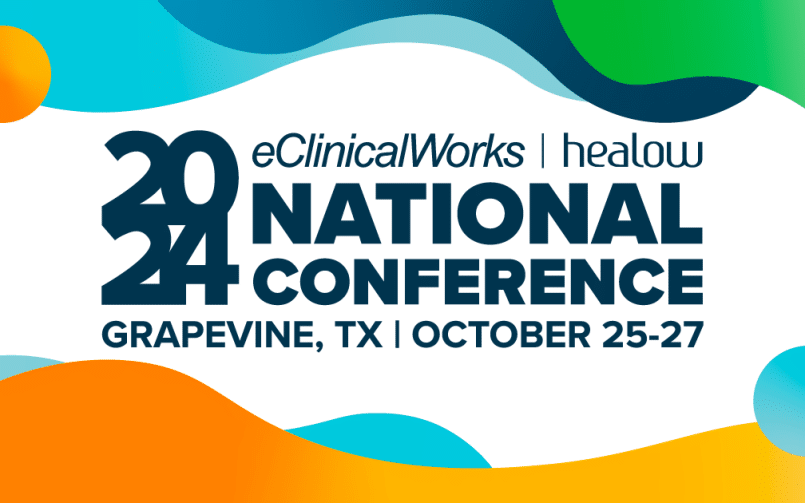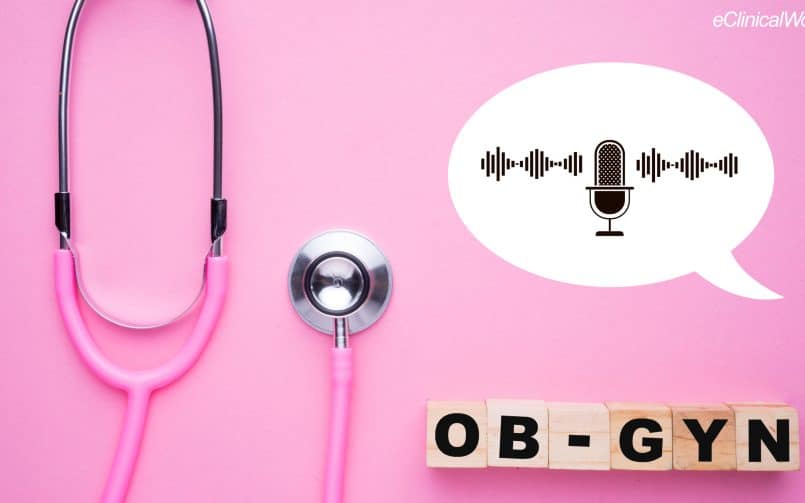eClinicalWorks Blog

- 27 October, 2024
- blog
Conference Ends, but the Learning Goes On
Sunday morning at the eClinicalWorks® and healow® National Conference just feels different — and a little bit special. After two days of announcements, renewing friendships, and traipsing about to one breakout session after another, you're feeling more at home.
Continue Reading
- 26 October, 2024
- blog
Saturday’s Mission: Touch All the Bases
Imagine working hard all day, walking miles, having to be at the top of your game, and just when you think it's time to rest, guess what? There's more to do!
Continue Reading
- 25 October, 2024
- blog
Powering Healthcare ‘to the Nth Degree of AI’
The opening day of the eClinicalWorks® and healow® National Conference is a time for product announcements, unveiling enhancements to the Electronic Health Record, and clients cheering when they see the solutions they have been awaiting come to life onstage.
Continue Reading
- 17 October, 2024
- blog
A Sneak Peek into the eClinicalWorks 2024 National Conference
The countdown for the 2024 eClinicalWorks® and healow® National Conference is upon us. We’re just days away from meeting you in person and sharing exciting industry updates and innovations, we’ve developed in the past year.
Continue Reading
- 10 October, 2024
- blog
Sunoh AI Medical Scribe is Transforming Documentation in Women’s Specialty Clinic
Women's specialty healthcare clinics provide comprehensive care across various stages of a woman's life—from adolescence to menopause. These clinics offer a broad range of services, including obstetrics and gynecology, infertility treatments, menopause care, preventive care, counseling services, lifestyle management, and aesthetic services.
Continue Reading
- 4 October, 2024
- blog
Sunoh.ai – A New Horizon in Pain Management
Each patient's physical condition and pain threshold are unique. With a detailed physical assessment—AKA ‘stethoscope time’— healthcare providers can determine the patient’s condition and develop a treatment plan.
Continue Reading
- 27 September, 2024
- blog
Sunoh.ai – The Ultimate AI Scribe Solution for your Healthcare Practice
The AI medical scribe solution integrated within eClinicalWorks EHR is transforming clinical documentation Provider burnout is a growing healthcare crisis. According to a review by the American Medical Association, it affects 63% of providers. One of the leading causes of burnout is the administrative burden that comes with clinical documentation.
Continue Reading
- 20 September, 2024
- blog
Revenue Cycle Management: Boosting Operational Efficiency and Productivity
Efficient revenue cycle management is crucial for operational success. Health centers often face challenges in revenue management, handling a high volume of claims may lead to errors and rejections.
Continue Reading
- 5 September, 2024
- blog
Healthcare Practices Benefiting with eClinicalWorks AI Capabilities
Artificial intelligence (AI) is a powerful tool, with the potential to fundamentally transform the practice of medicine and the delivery of healthcare. AI-related technologies are gaining increased significance and being applied in healthcare.
Continue Reading
- 29 August, 2024
- blog
The Emerging Role of AI Medical Scribes in Patient Engagement
Our recent survey illustrates that artificial intelligence (AI) presents some fascinating opportunities for the healthcare industry. AI medical scribes are at the forefront of the latest technological advancements, bringing about a seismic shift in patient care and engagement.
Continue Reading
- 22 August, 2024
- blog
Steering Your Practice Toward Success
Phoenix Pointe Psychiatry Skyrockets Success with eClinicalWorks RCM Services Setting up your own practice can be a challenging — from getting an office space ready to hiring and training staff, acquiring patients, implementing the latest healthcare technology, navigating administrative duties, and juggling all of it while maintaining the quality of care.
Continue Reading
- 15 August, 2024
- blog
The ABCs of Back to School — for Patients and Practices
They are the three little words that students and teachers nationwide (and some medical practices) dread: Back to school!
Continue Reading